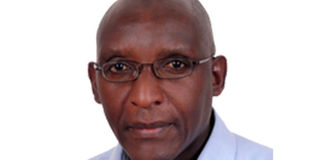Redefine success to make our education systems work

Okodan Akwap
What you need to know:
- Important questions. The more important questions, in my view, are: How can we motivate both learners and teachers? How can we make learning fun and teaching rewarding? How can we move away from loudly celebrating grades in the media to quietly celebrating skills acquisition? Formal education in Uganda was started by missionaries. Their mission was simple: Teaching natives how to read and write and to revere the “superior” culture of colonialists.
Daily Monitor’s lead headline of February 5 read: ‘Ugandan children not learning – World Bank’ while the New Vision’s headline of the same day screamed: ‘Government wants to scrap Primary Leaving Exams.’
The newspapers were reporting on the World Bank’s latest publication, ‘Facing forward – schooling for learning in Africa.’
Ms Sajitha Basir, the Bank’s education practice manager for Eastern Africa, was quoted as saying: “Enrolment alone does not produce knowledge capital. It must prepare many of them (learners) to be educated and trained beyond basic education…”
Once again, poor teacher training, language of instruction, teacher/learner absenteeism, lack of teaching materials, overcrowded classrooms and low funding were cited as problem areas. Similarly, abolishing exams, teaching learners in local languages and giving equal opportunity for all children to learn were again cited as possible paths to success.
The key word here is success. A letter titled, ‘How is UPE success measured?’ in the same edition of Daily Monitor raised similar issues. The letter reminded us of a book President Museveni recently launched lauding the achievements of Universal Primary Education (UPE). The writer noted that “Statistics were quoted presenting a picture of a policy that has been a roaring success…” Yet many people in Uganda point to “alleged low quality of UPE tuition.”
In the business section of the same edition of the Daily Monitor, an article by James Abola, a business and finance consultant, was equally attention-catching. Titled, ‘What education is your child getting?’ it ended thus: “Parents, educators and students need to ask if the education being provided today will give the student a fighting chance when they graduate.”
A fighting chance means a good chance of success in life. But how do we define success in our society? Commonly, we speak of success when we see someone achieving wealth or fame. This is what makes us see even fraudsters, thieves and whatnot as successful people. Needlessly, we now see teachers, learners, school owners/administrators and some officials at the Uganda National Examinations Board (Uneb) engaging in all sorts of malpractices with the singular purpose of aiding cramming and passing of exams.
Events unfolding when Uneb releases results seem to suggest that no longer do we see success as the correct or desired result of honest attempts at acquiring or imparting a good education. Clearly, a good education must make learners and teachers eager to develop the mindset that if they set out to achieve a particular objective or goal, it is possible that they will achieve it, but only if they make a great effort.
The quest for success should push our students and teachers to do their best to set and achieve specific objectives/goals. This should be the defining thing instilling in learners’ or teachers’ minds the message that success means understanding the difference between need and want.
When officials at the Ministry of Education and the National Curriculum Development Centre discuss the idea of scrapping PLE, are they discussing need or want? When government focuses more on science than arts, is this about need or want? I think we are now at a point where we must rise above simplistic solutions.
The more important questions, in my view, are: How can we motivate both learners and teachers? How can we make learning fun and teaching rewarding? How can we move away from loudly celebrating grades in the media to quietly celebrating skills acquisition?
Formal education in Uganda was started by missionaries. Their mission was simple: Teaching natives how to read and write and to revere the “superior” culture of colonialists. But the field of education has become increasingly complex in respect of admissions, streaming of gender, curriculum development, teacher recruitment and the whole processes of evaluation, leadership and management of conflicts in our education systems.
Uganda, like other struggling economies, must realise that the fastest vehicle for national development is to increase investment in education. It is either that or we go nowhere.
Dr Akwap is the acting deputy vice chancellor for academic affairs at Kumi University.
[email protected]




